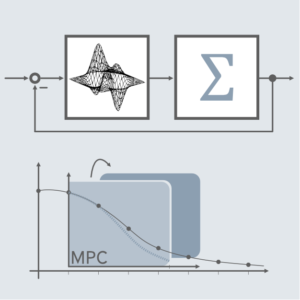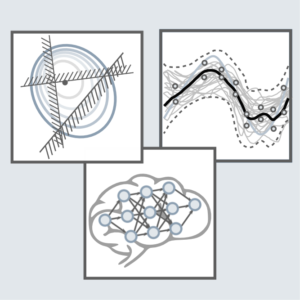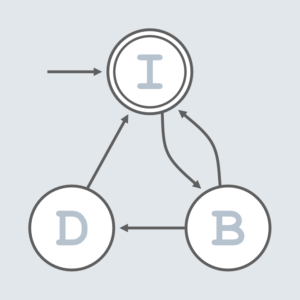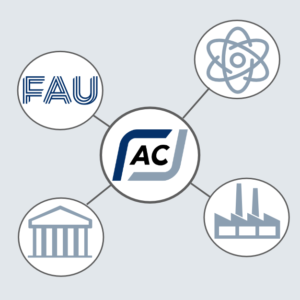Research
Control & Optimization
The development of control and optimization methods for dynamical systems is the natural research focus of the Chair of Automatic Control. In particular, we focus on nonlinear and predictive control concepts as well as path/trajectory planning for dynamical systems closely related to optimization-based methods, always having an eye on the real-time and embedded realization for practical applications.
Learning in Control
Algorithms of artificial intelligence and machine learning are of increasing importance for control applications. Our research and expertise in this domain ranges from the modeling of unknown or uncertain dynamics over iterative and reinforcement learning to Bayesian optimization.
Discrete Event Systems
Discrete event systems (DES) are dynamical systems with a finite-range state variable. Prototypical application domains are so called “men made systems”, e.g., for automated manufacturing or logistics, which by construction can be adequately represented by discrete-event models. Our DES research group develops methods for the analysis and synthesis of discrete-event systems with a particular focus on modular and/or hierarchical control architectures.
Mechatronics & Automotive
Mechatronic systems consist of both mechanical and electrical components. Typical challenges are the high integration of these systems along with the limited computational resources of embedded hardware such as electronic control units (ECUs) in automotive applications. We have a successful history of bridging the gap between theory and practice in close cooperation with industrial partners from the mechatronics and automotive domain.
Robotics
Robotics deals in general with machines that can assist or perform the execution of tasks such as assembly or machining tasks by industrial robots. Research projects in this area concern, for example, the control of motions and forces in human-robot interaction as well as the planning of paths and trajectories for mobile and collaborative robots.
Energy Solutions
The energy-efficient operation of technical systems is of increasing importance in view of global warming and the transition to renewable energies. Control systems engineering has a high potential to contribute to the efficient use of energy, for example, regarding energy consumption of buildings, energy conversion and storage, as well as power grids. Our research in terms of optimization and learning-based control methods forms the ideal basis to develop sustainable solutions in energy-related applications.
Projects & Publications
The chair works on research projects in cooperation with industrial partners and public funding bodies such as the German Research Foundation (DFG). An overview of ongoing and completed projects can be found in this section.
The Chair publishes papers in renowned international conferences and journals. A list of publications produced at the chair can be found here.





